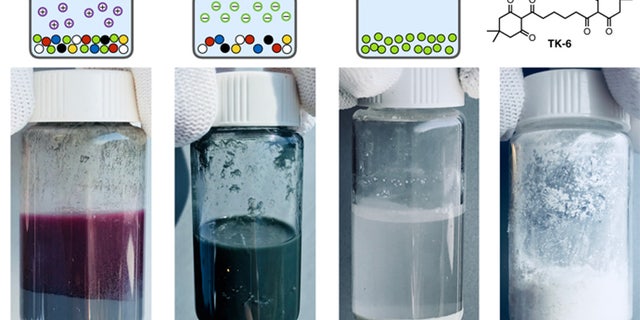Breakthrough Discovery Could Lead to 100% Recyclable Plastics
Published on by Water Network Research, Official research team of The Water Network in Science
Plastic pollution in the world's oceans may have a $2.5 trillion impact, negatively affecting "almost all marine ecosystem services," including areas such as fisheries, recreation and heritage. But a breakthrough from scientists at Berkeley Lab could be the solution the planet needs for this eye-opening problem – recyclable plastics.
By Chris Ciaccia, Fox News
The study details how the researchers were able to discover a new way to assemble the plastics and reuse them "into new materials of any color, shape, or form."
“Most plastics were never made to be recycled,” said lead author Peter Christensen, a postdoctoral researcher at Berkeley Lab’s Molecular Foundry, in the statement. “But we have discovered a new way to assemble plastics that takes recycling into consideration from a molecular perspective.”
Known as poly(diketoenamine), or PDK, the new type of plastic material could help stem the tide of plastics piling up at recycling plants, as the bonds PDK forms are able to be reversed via a simple acid bath, the researchers believe.
"Poly(diketoenamine)s ‘click’ together from a wide variety of triketones and aromatic or aliphatic amines, yielding only water as a by-product," the study's abstract reads. "Recovered monomers can be re-manufactured into the same polymer formulation, without loss of performance, as well as other polymer formulations with differentiated properties. The ease with which poly(diketoenamine)s can be manufactured, used, recycled and re-used—without losing value—points to new directions in designing sustainable polymers with minimal environmental impact."

Unlike conventional plastics, the monomers of PDK plastic could be recovered and freed from any compounded additives simply by dunking the material in a highly acidic solution. (Credit: Peter Christensen et al./Berkeley Lab)
A byproduct of petroleum, plastic is inherently made up of molecules known as polymers that are composed of carbon-containing compounds known as monomers. Once chemicals are added to the plastic for use and consumption, the monomers bind with the chemicals and make it difficult to be processed at recycling plants, the researchers said.
Reference:
Peter R. Christensen, Angelique M. Scheuermann, Kathryn E. Loeffler & Brett A. Helms, "Closed-loop recycling of plastics enabled by dynamic covalent diketoenamine bonds", Nature Chemistry, April 2019, DOI: 10.1038/s41557-019-0249-2
Media
Taxonomy
- plastic pollution